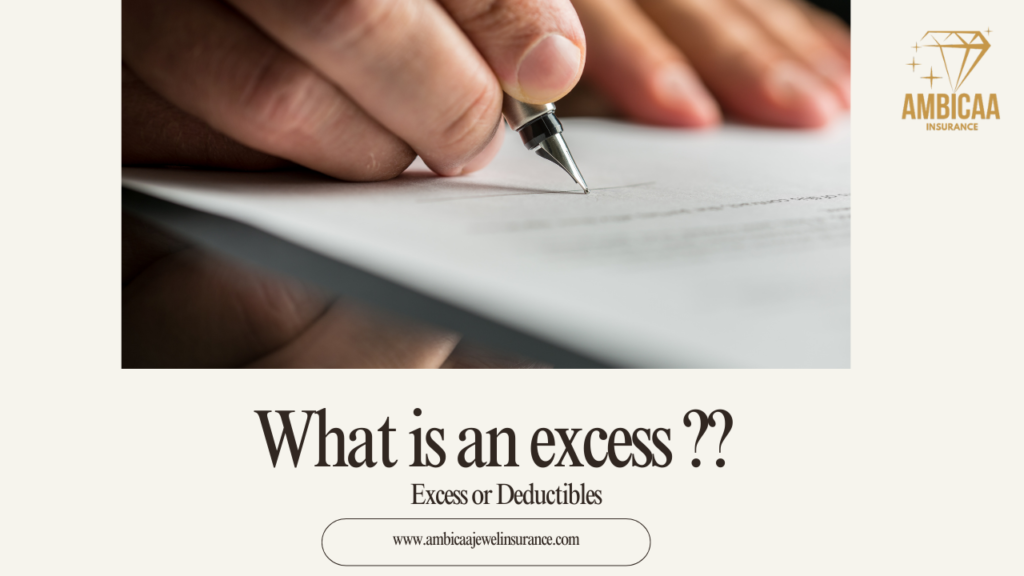What is an excess or deductibles??
Excess in insurance refers to the amount of money that the policyholder agrees to pay towards the cost of a claim before the insurance company starts to pay. It is also known as the deductible.
When an insurance company receives an excess payment from a policyholder, it typically uses this amount to cover a portion of the cost of a claim. Such as hiring of surveyor, arbitrator, Report charges, Intimation charges, and other miscellaneous charges. The purpose of the excess is to share the risk between the policyholder and the insurance company. By requiring the policyholder to pay a portion of the claim upfront, the insurance company can reduce the number of small or frivolous claims and help keep insurance premiums more affordable for everyone.
In a typical jeweller’s insurance the excess varies from 20,000 – 2,00,000 depending upon the Sum insured and previous claims history from an individual or a peril.
When is this excess or deductibles paid?
Typically deducted or reduced during the settlement of from your claim.
Do we bear an excess even if claim is not paid?
No.
Is there anything like zero excess in insurance?
Yes, some insurance policies offer a “zero excess” option, where the policyholder does not have to pay any excess in the event of a claim. This means that if a claim is made, the insurance company will cover the entire cost of the claim, up to the policy’s limits, without requiring the policyholder to contribute any money towards it. However, it’s important to note that insurance policies with a zero excess option may have higher premiums compared to policies with a standard excess




